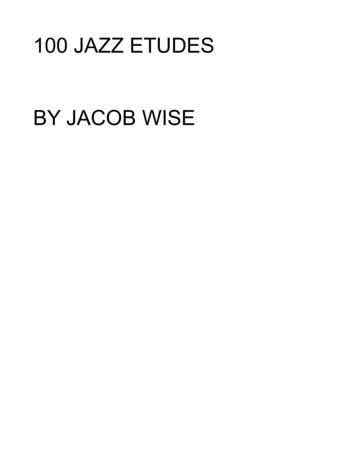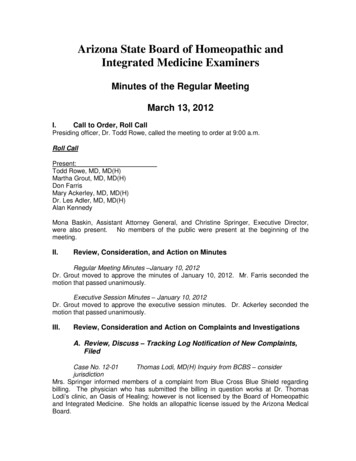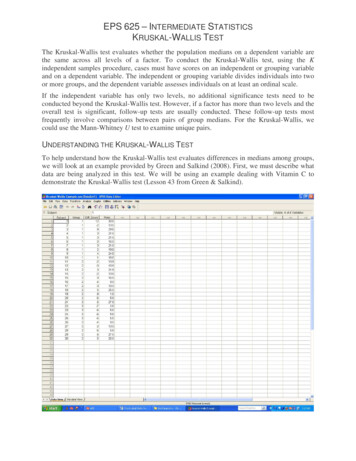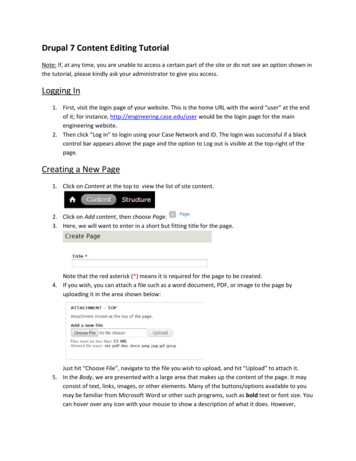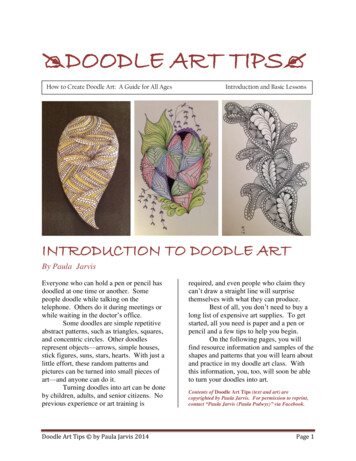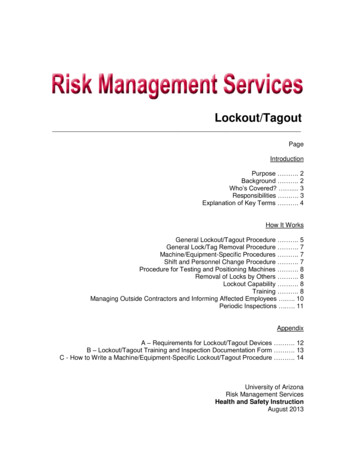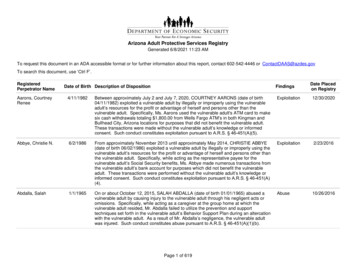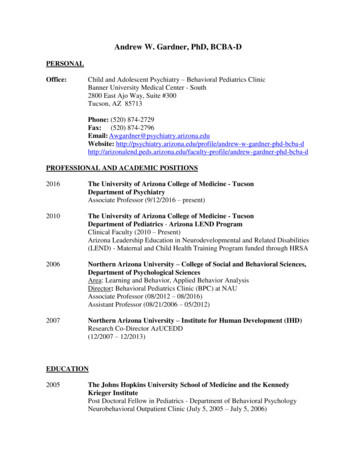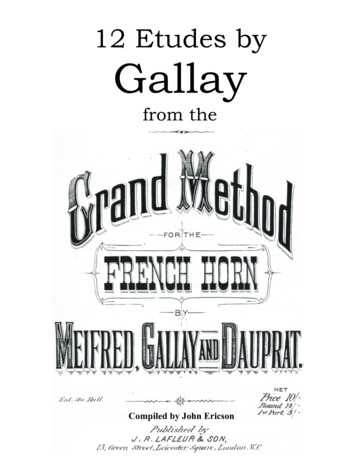
Transcription
12 Etudes byGallayfrom theCompiled by John Ericson12 Etudes from the Gallay Méthode – Ericson – P. 1
These PDF, public domain etudes are extracted from the Grand Method for the FrenchHorn by Meifred, Gallay and Dauprat.While the title makes it sound like the great horn teachers Joseph Emile Meifred, Louis François Dauprat, and Jacques François Gallay all sat down together and workedout a big book of exercises and such, in reality this was put together by a publisher inLondon around 1880. If they had proper permission or if they just stole the materialsfrom the method books of the three I don’t know. Copyright laws back then were notquite what they are today.The best of the materials, in terms of use on the modern horn, are the duets andetudes by Gallay. These originated in the Gallay Méthode pour le Cor, Op.54, whichwas published in 1843. The duets and etudes show the melodic gift of this prolificcomposer of horn music well. It was all intended for the natural horn, but the etudesin particular will still be a challenge for the modern horn player.The only negative I would note with these materials are the French style rests. Youwill get the hang of reading them pretty quickly, though, the musical context is always clear.The 12 etudes I would note also are actually two groups of six; first up are six melodies followed by six characteristic studies.For more on Gallay I offer this brief introductory biographical info:One of the most recognized nineteenth-century horn teachers is JacquesFrançois Gallay (1795-1864). Gallay studied with Louis-François Dauprat(1787-1868) at the Paris Conservatory, entering his studio at the relativelylate age of 25. In addition to performing as an operatic and chamber musician, Gallay succeeded Dauprat at the Conservatory, serving on the facultyfrom 1842 until his death in 1864.John EricsonArizona State UniversityCopyright 2015, John Ericson. All rights reserved. This PDF edition may not be soldor published, and may not be included in any collection of teaching materials orbook without express permission.12 Etudes from the Gallay Méthode – Ericson – P. 2
12 Etudes from the Gallay Méthode – Ericson – P. 3
12 Etudes from the Gallay Méthode – Ericson – P. 4
12 Etudes from the Gallay Méthode – Ericson – P. 5
12 Etudes from the Gallay Méthode – Ericson – P. 6
12 Etudes from the Gallay Méthode – Ericson – P. 7
12 Etudes from the Gallay Méthode – Ericson – P. 8
12 Etudes from the Gallay Méthode – Ericson – P. 9
12 Etudes from the Gallay Méthode – Ericson – P. 10
12 Etudes from the Gallay Méthode – Ericson – P. 11
12 Etudes from the Gallay Méthode – Ericson – P. 12
12 Etudes from the Gallay Méthode – Ericson – P. 13
12 Etudes from the Gallay Méthode – Ericson – P. 14
composer of horn music well. It was all intended for the natural horn, but the etudes in particular will still be a challenge for the modern horn player. The only negative I would note with these materials are the French style rests. You will get the hang of reading them pretty quickly, though, the musical context is

